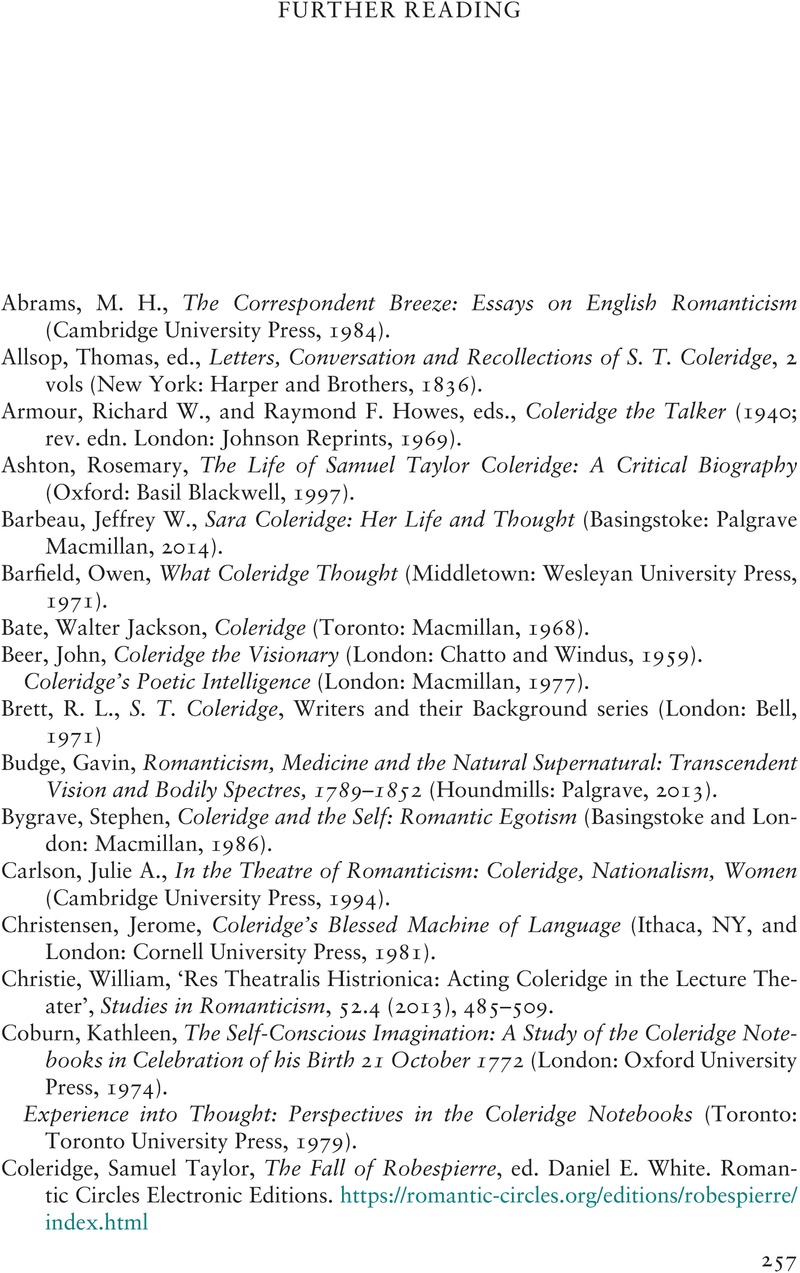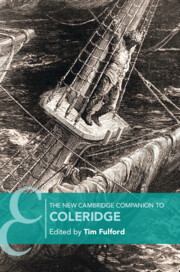Book contents
- the new cambridge companion to coleridge
- The New Cambridge Companion to Coleridge
- Copyright page
- Contents
- Notes on Contributors
- Chronology
- Abbreviations
- 1 Coleridge at 250
- 2 Political Coleridge
- 3 Coleridge and Collaboration
- 4 Nature Lyrics
- 5 Coleridge’s Ecopoetics
- 6 Gothic Coleridge, Ballad Coleridge
- 7 Coleridge’s Metres
- 8 Coleridge and the Theatre
- 9 Coleridge the Walker
- 10 Notebook Coleridge
- 11 Coleridge and Science
- 12 Religious Coleridge
- 13 Coleridge the Lecturer and Critic
- 14 Coleridge’s Philosophies
- 15 Coleridge’s Later Poetry
- 16 Coleridge and History
- Further Reading
- Index
- Cambridge Companions To …
- References
Further Reading
Published online by Cambridge University Press: 13 November 2022
- the new cambridge companion to coleridge
- The New Cambridge Companion to Coleridge
- Copyright page
- Contents
- Notes on Contributors
- Chronology
- Abbreviations
- 1 Coleridge at 250
- 2 Political Coleridge
- 3 Coleridge and Collaboration
- 4 Nature Lyrics
- 5 Coleridge’s Ecopoetics
- 6 Gothic Coleridge, Ballad Coleridge
- 7 Coleridge’s Metres
- 8 Coleridge and the Theatre
- 9 Coleridge the Walker
- 10 Notebook Coleridge
- 11 Coleridge and Science
- 12 Religious Coleridge
- 13 Coleridge the Lecturer and Critic
- 14 Coleridge’s Philosophies
- 15 Coleridge’s Later Poetry
- 16 Coleridge and History
- Further Reading
- Index
- Cambridge Companions To …
- References
Summary

- Type
- Chapter
- Information
- The New Cambridge Companion to Coleridge , pp. 257 - 261Publisher: Cambridge University PressPrint publication year: 2022



